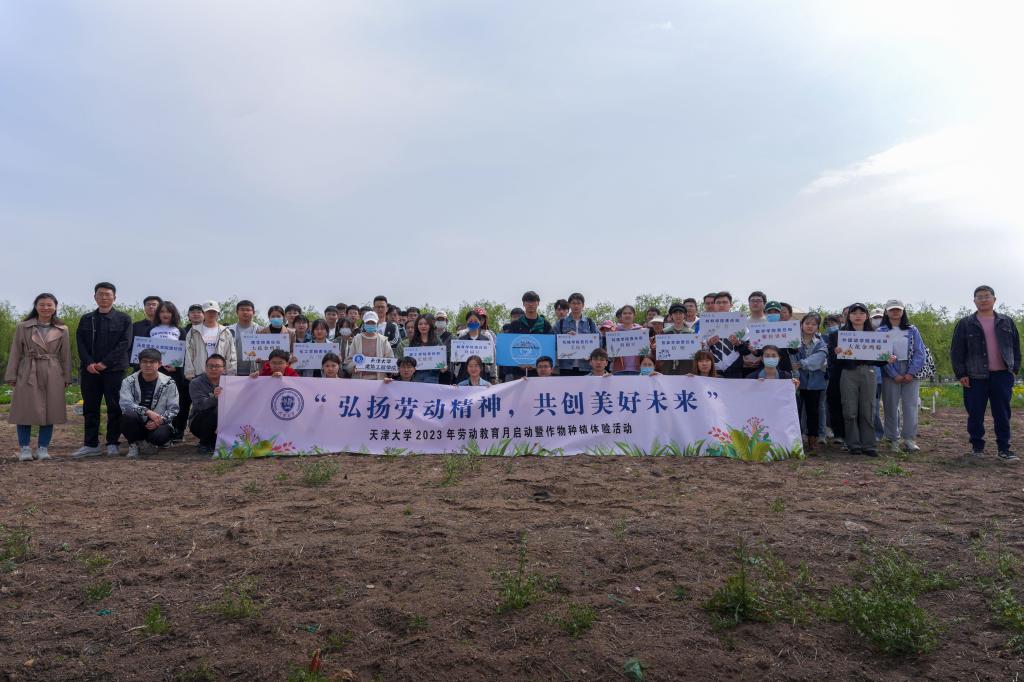Tianjin University(TJU) carried out a series of labor education on the occasion of Labor Day, with students weeding, turning the ground, planting flowers and picking herbs on both campuses. Together they formed a lively farming scene.
This tradition dates back to 2019, when the last week of April was designated as "TJU Labor Week" and May as "Labor Education Month". Students are given access to various courses and activities on crop and herb cultivation, fruit picking, and cooking at more than 30 labor education practice bases built in such shared places as school public open space, nurseries and student communities inside and outside

school.
On Peiyang Campus
In the 10-acre crop planting base on Peiyang Campus, 12 patches of land were assigned to students from 12 schools to farm on. Under the guidance of the “Farming Supervisor”, students were conducting field work about crop planting. They used shovels, plows and harrows to turn over the soil, level the land, sow the sees, and water the land. They were taught about flower planting, growth habits and care methods.
"I learned how to till the soil, use the nail rake, and water flowers more efficiently. How much there is to learn about farming! And so joyful it is to plant!" said Chu Zhouming, a graduate at the School of Materials Science and Engineering.


It is said that students would tend the flowers until they burst into bloom and be transplanted to the university’ labour fruit,” as the university put it.
Heated labor scene was also seen near the National Large-scale Earthquake Engineering Simulation Research Facility. Students engaged in lawn planting and tree maintenance nearby the facility.
"Through these activities, I have a better idea about labor, its significance and the sense of gain and happiness people can get from it, and about the importance of all-round development valued by the university." said Gong Ruilin, a senior student from the School of Civil Engineering.
On Weijinlu Campus
In the "Hundred Herb Garden", a herbal planting experience area on the Weijin Road campus, planted a variety of Chinese herbs such as indigowoad roots, cassia seeds, ricinus communis, cockscomb and perilla.
By hoeing, turning the soil, sowing and watering together, students and teachers immersed themselves in Chinese herbal medicine cultivation and preparation, feeling the charm of brilliant Chinese traditional culture.

"Indigowoad roots likes light, fertilizer, and is afraid of being waterlogged. 1-1.5 cm of soil after sowing is most suitable for the seeds to grow." said Li Xia, professor of the School of Pharmaceutical Science and Technology.
As one of the instructors of " Hundred Herb Garden" and one of the main instructors of the general education course of "Herb Planting and Cultural Innovation Practice", she was teaching students how to cultivate indigowoad roots. It’s hope that through this labor experience, students can build up their bodies while getting a glimpse into the vast and profound Chinese medicine culture and the great power of life.
By Mo Jingwen
Editor: Eva Yin






